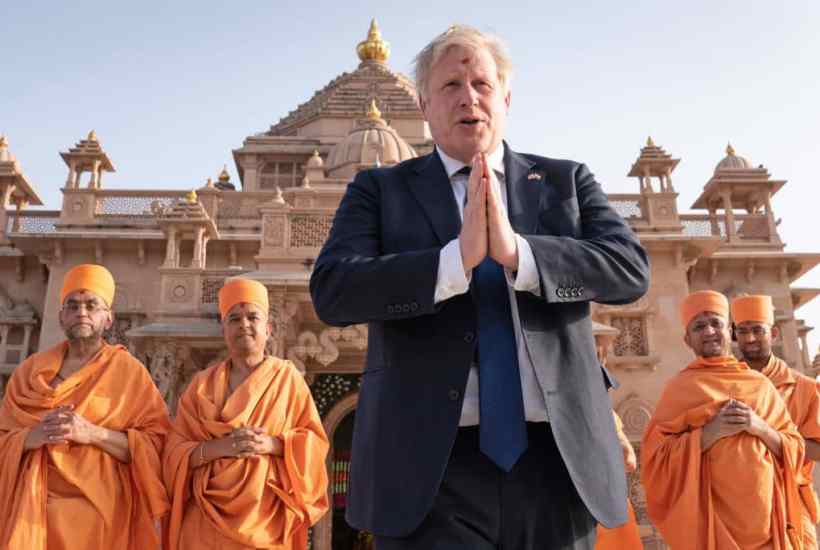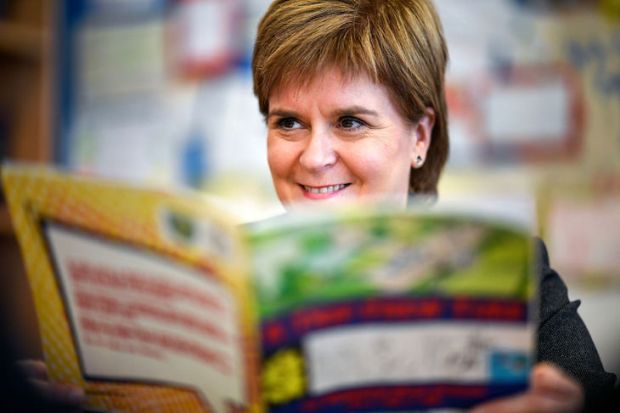When Russia invaded Ukraine the Indian government rapidly launched ‘Operation Ganga’. This was not a military operation, nor did it aim to supply Ukraine with weapons – it was an operation to extract the 500 Indian students stranded in Ukraine.
After Prime Minister Narendra’s Modi’s video call with Putin, the Russian president ordered his invading army ‘to ensure the safe exit of Indian nationals from the armed conflict zone.’ The Indian government quickly dispatched civil servants, not weapons, to Poland, Hungary and Romania to assist their fleeing citizens. Since February more than 22,000 have been repatriated.
Otherwise, Modi’s attitude to Ukraine has been decidedly non-committal. He proffered his ‘deep anguish about the loss of life’ and called for dialogue and a cessation of violence. Modi is willing ‘to contribute in any way towards peace efforts.’ Other platitudes are available.
Substantively, when it came to the UN vote condemning Putin’s invasion, India sat firmly on the fence and abstained. In New Delhi, the Russian Embassy tweeted its congratulations on India’s ‘independent and balanced’ approach.
In light of India’s stance, it is interesting to note that Boris Johnson, on the eve of his visit to India yesterday, made no pejorative statements about Modi’s lack of support for Ukraine. Germany has been unequivocally criticised for not adequately supporting Ukraine, but not India. Even foreign secretary Liz Truss, paving the way for Boris with her visit to India on 1 April, the same day Russian foreign minister Lavrov arrived from Moscow, toned down her usual aggressive rhetoric. ‘The Ukraine crisis highlights the need for like-minded nations to work together,’ she declared.
Her sotto voce censure did not work. Truss’s hinted disapproval of Indian oil imports from Russia brought a punchy response. Foreign minister S. Jaishankar pointed out the hypocrisy of the West lecturing India on its energy imports from Russia. His riposte made Truss look very much the wilted flower.
No wonder that Boris made no mention of Ukraine in advance of his meeting with Modi in his home state of Gujerat. Johnson has talked about trade, immigration of skilled Indians and Asia security, ‘the things that matter’. So far Ukraine has been as absent as discussions about partygate. While the Prime Minister has forewarned that ‘the world faces growing threats from autocratic states’, he has made it clear that he will not criticise Modi’s India whose partnership with India he describes as ‘a beacon in these stormy seas.’
Britain’s light touch with regard to Modi’s de facto support for Russia is not atypical of the West’s softly-softly approach to India over Ukraine. Europe has yet to raise the Ukraine issue with India, although European Commission President Ursula Von der Leyen will visit India on Sunday as chief guest of the Raisina Dialogue, India’s flagship annual economic and geopolitical conference. She will separately meet Modi to discuss a mooted free trade agreement. The EU has disclosed, seemingly almost as an afterthought, that ‘Russia’s war against Ukraine will also feature in discussions.’
The US has been a little more direct. But though President Joe Biden has complained about India being ‘somewhat shaky on Ukraine’ his video conference call with Modi two weeks ago was anything but confrontational. Biden simply urged India to buy less oil from Russia.
Over the last months the US is no doubt irked that oil, barred from sale to western markets, has been picked up at a heavily discounted price by India. Six million barrels, double their purchases for the whole of 2021, have been delivered over the past month. Furthermore, Jaishankar has made it clear that India will continue to seek out energy bargains from Russia. As with Truss, India’s unanswerable riposte to Biden was that it buys a fraction of its energy from Russia compared to the West.
Even President Volodimir Zelensky has treated India with kid-gloves compared to his, often withering, criticism of some European countries’ lack of support. On March 7 Modi, in a display of even-handedness, had a 35-minute talk with Zelenksy and a 50-minute talk with Putin. Afterwards Zelensky proffered his gratitude to India for its support. What support, one might ask.
Why the soft-soap approach to India over its Russia-Ukraine policy? In large part the West’s approach reflects the greater geopolitical game. India is a crucial member of the ‘Quad’, the grouping, including the US, Japan and Australia, whose aim is to deter China’s expansion in the Indo-Pacific. Now that the world is moving rapidly toward a two-bloc system with the US and Europe lined up against China and Russia, India’s importance has risen. Keeping India onside is a priority for the western alliance that is desperately trying to contain expansion of Chinese power, not only in the Indo-Pacific but also worldwide.
India’s growing economic power is a further draw for the West. Commercial relations with Russia are dead for the foreseeable future. More importantly the ‘golden decade’ of commercial engagement with China, which was envisioned by George Osborne in his speech to the Shanghai Stock Exchange in 2015, has long since lost its lustre.
Of the great developing superpowers therefore, only India remains as a potentially reliable long-term commercial partner; its GDP, $11 billion (measured in purchasing power parity) already ranks it fourth in the world behind China ($32 billion), the US ($25 billion) and the EU ($23 billion). If the West is going to have a ‘golden decade’ and more, it will have to be with India. Looking into the future India is forecast to overtake America’s GDP (in PPP) by 2050 and will surpass China’s by 2070.
It is this last projection of course that terrifies China. It is why China is harassing India along its Himalayan borders and why President Xi Jinping is building a navy to dominate the Bay of Bengal and the Indian Ocean. It is also why China is buttressing the economy of India’s sworn enemy Pakistan and developing a naval base on India’s eastern flank – Djibouti on the Gulf of Aden – as well as corridor across Pakistan to the port that China is financing at Gwadar.
Given that China views India as its long-term enemy and geopolitical rival why is Modi so accommodating of its ally, Russia, which has, over the past few years, moved decisively into China’s camp? The reasons are rooted in history. In the first Cold War, the neo-Marxist leaders of India, Nehru and his daughter Indira Gandhi, superficially self-declared as ‘non-aligned’, were de facto allies of the Soviet Union. In exchange for weaponry and commodities India sold them substandard consumer product from their equally autarkic economy. In addition, the Soviets gave India geopolitical support, notably in its war with Pakistan in 1971, which included the bloody Indian invasion of East Pakistan, what is now Bangladesh. In the same year the Indo-Soviet Treaty of Friendship and Cooperation was signed.
Importantly, India’s military hardware is still 70 per cent Russian and India still purchases more weaponry from Russia than America. Then there is the issue of energy. India is energy poor. Apart from buying discounted Russian oil, in the long-term India may need to buy Russian gas.
For the time-being a geopolitical balancing act vis-à-vis Russia’s invasion of Ukraine is in India’s interests. India can afford its ambivalence. Its growing economic and military power has the West and Russia grovelling at its feet. Modi sits in the pound seats. As Indian external affairs minister, S. Jaishankar has stated, ‘I think we should choose a side, and that’s our side’. This India First strategy will not be challenged by the West.
Got something to add? Join the discussion and comment below.
Get 10 issues for just $10
Subscribe to The Spectator Australia today for the next 10 magazine issues, plus full online access, for just $10.




















Comments
Don't miss out
Join the conversation with other Spectator Australia readers. Subscribe to leave a comment.
SUBSCRIBEAlready a subscriber? Log in